Handwriting Skills Progress at GiGi’s
1-25-16
Handwriting skills are important to develop at an early age
Being able to communicate in print is a key component to academic success. Due to low tone, individuals with T21 have greater difficulty with handwriting and letter formation. GiGi’s began offering Little Fingers, Big Plans, using the popular Handwriting Without Tears program, in January 2016 to help kids of all ages develop their handwriting skills.
The program takes place on two Sunday’s per month from 11:00 to noon at the Playhouse and as with all Playhouse programs is of no cost to the participants. During class the participants and their parents or a volunteer, go from station to station working on different skills related to handwriting such as building letters out of wood shapes, using a chalkboard to draw a letter with a wet sponge, dry it with a cloth and try it with chalk, cutting shapes and constructing a letter with them on paper with glue, tracing, writing letters and letter shapes and playing with classmates.
Along with handwriting skills, the class works on fine motor skills, sensory awareness, peer-to-peer social interaction, direction, shape and size concepts, sharing and listening skills. Class activities are modified to the individual participant’s current ability and goals. Additionally, parents are given materials to take home and continue the practice during the weeks between classes.
Register for an upcoming handwriting class at Signup Genius.
TRY THIS AT HOME
Kids often have a better time with the size of a dry erase marker. Print out a large letter shape and either laminate it or tuck it into a page protector. Have the child trace the letter with a dry erase marker and then erase the letter with an eraser. Have him make the letter sound as he is tracing and discuss things that begin with that letter.
[youtube https://www.youtube.com/watch?v=ofaIwtS1Aw4]
Recent Posts

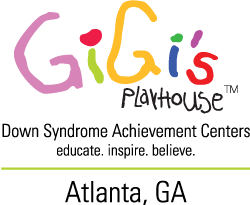
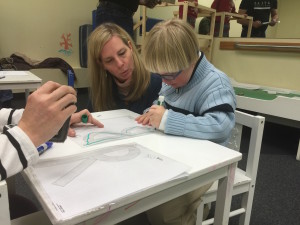
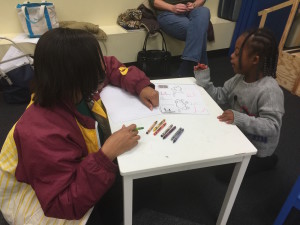
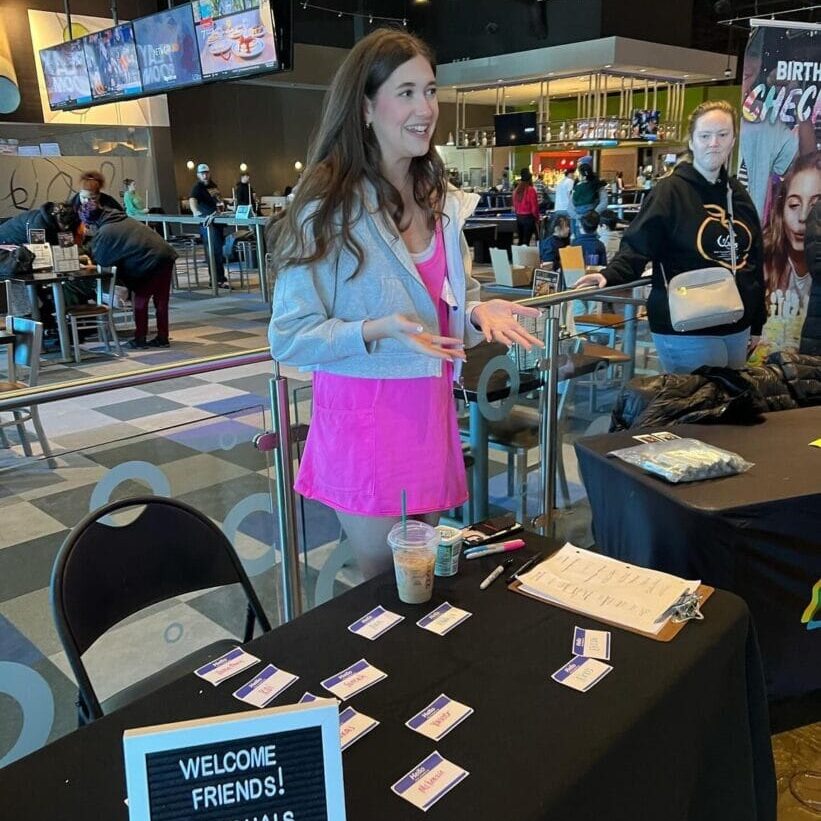
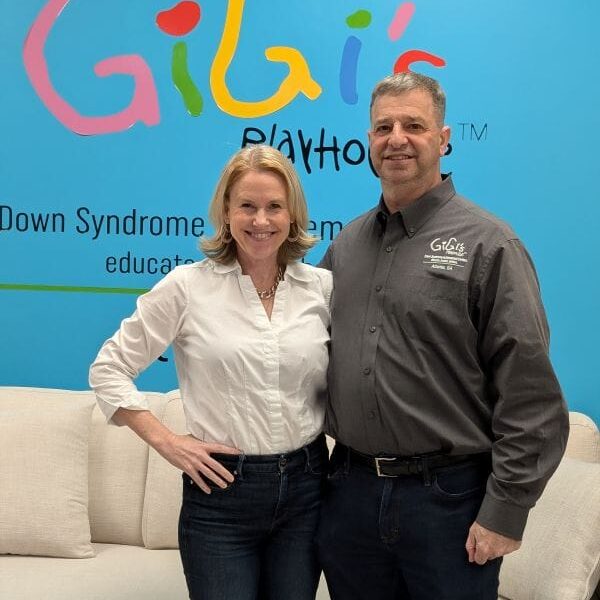
Also good to note that some of the BEST activities for handwriting have NO PEN AND PAPER in sight. Get your kids crawling, manipulating therapy putty, spooning beans, working with tongs and tweezers, etc.. I promise you will see a dramatic change. I used these and other activities with typically developing kids in my classroom and my son with Trisomy 21. If only I’d known it when my oldest was little. He was academically gifted But never crawled so his handwriting/fine motor skills is less than ideal at now 23 years old.